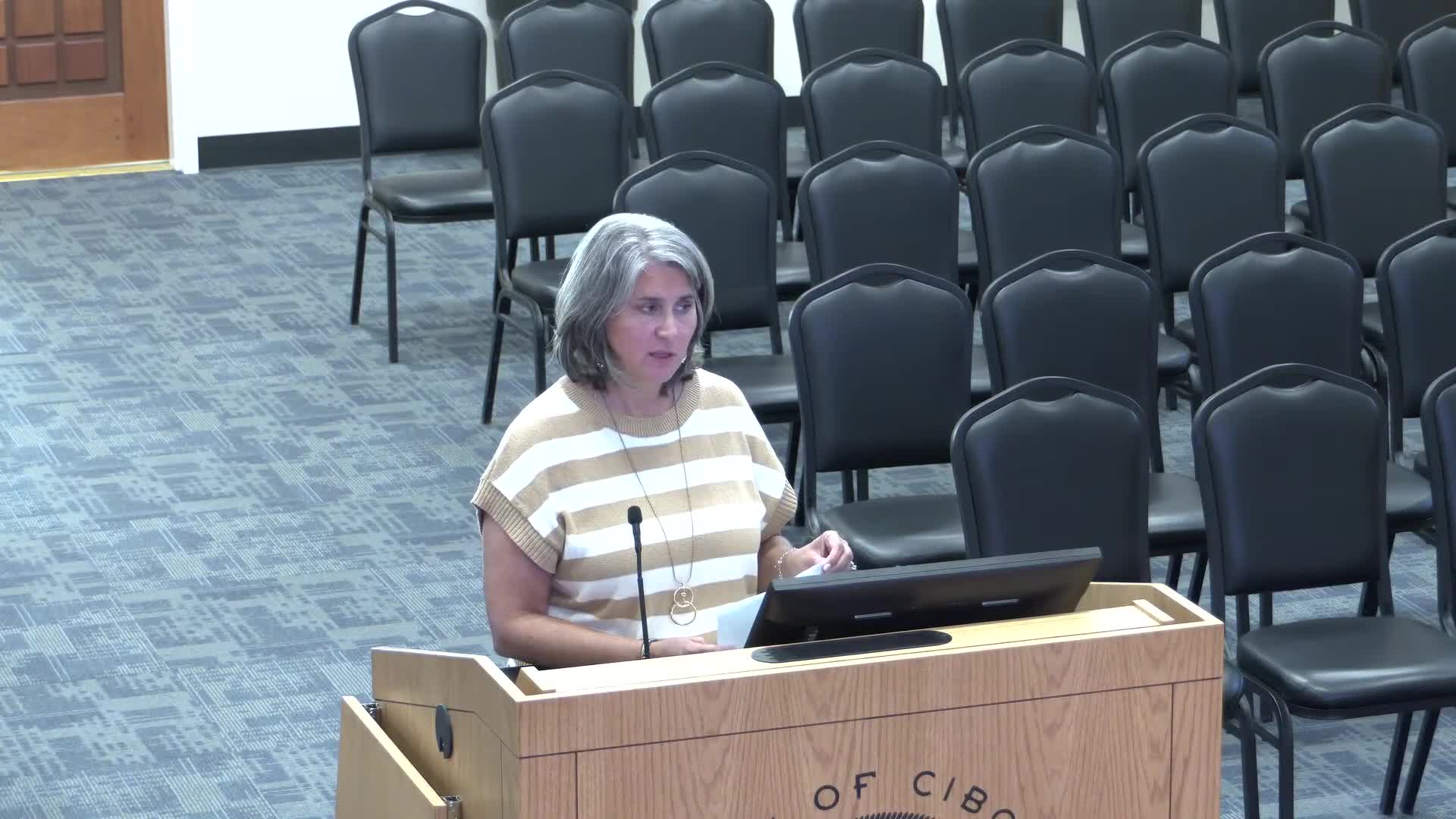Cibolo City Council Debates Voter Approved Tax Rate Amid Declining Property Values
August 01, 2025 | Cibolo City, Guadalupe County, Texas
This article was created by AI summarizing key points discussed. AI makes mistakes, so for full details and context, please refer to the video of the full meeting. Please report any errors so we can fix them. Report an error »

In the dimly lit chambers of Cibolo City Hall, council members gathered on July 31, 2025, to deliberate on a pressing issue that could affect every resident's pocketbook: the proposed voter-approved tax rate. As discussions unfolded, the atmosphere was charged with a mix of concern and pragmatism, reflecting the complexities of managing a growing city amidst fluctuating property values.
The council was presented with a tax rate of 52.26 cents per $100 valuation, which, according to city officials, would result in an average annual increase of just $14 for homeowners. This modest rise was framed against the backdrop of declining property values, which have seen a decrease of approximately 5% in recent assessments. Councilman John Meadows expressed support for the tax rate, emphasizing that the increase was negligible compared to potential hikes from the school district.
However, not all council members were on board. Councilwoman Sanchez Stevens voiced her opposition, highlighting the need for careful consideration of the city's financial landscape. She raised concerns about the sustainability of the proposed rate, especially in light of rising water and wastewater costs, and suggested exploring budget cuts, particularly in executive salaries, to free up funds for additional staffing.
The conversation took a broader turn as Councilwoman Cunningham pointed out the challenges of rapid growth in Cibolo, noting that the city was still in "catch-up mode" regarding infrastructure and services. She acknowledged the reluctance of residents to accept any tax increase but argued that the proposed rate was necessary to maintain essential services and avoid deeper financial pitfalls.
As the meeting progressed, the council members grappled with the implications of the tax rate on their constituents. Councilman Mahoney raised questions about the distribution of property value changes across neighborhoods, seeking clarity on how many residents would actually feel the impact of the proposed increase. His inquiry underscored the need for transparency and communication with the public regarding the tax implications.
In a moment of consensus, several council members agreed on the importance of budget cuts alongside the tax increase. They discussed potential reductions in non-essential expenditures, such as council event budgets and training costs, to demonstrate fiscal responsibility to the community.
As the meeting drew to a close, the council faced a pivotal decision that would shape the financial future of Cibolo. The proposed tax rate, while modest in its immediate impact, carried significant implications for the city's ability to provide services and respond to future challenges. With the specter of rising exemptions and potential changes in state tax policy looming, the council's deliberations highlighted the delicate balance between maintaining essential services and ensuring the financial well-being of its residents. The outcome of this decision will resonate throughout the community, as Cibolo navigates its path forward in an ever-evolving economic landscape.
The council was presented with a tax rate of 52.26 cents per $100 valuation, which, according to city officials, would result in an average annual increase of just $14 for homeowners. This modest rise was framed against the backdrop of declining property values, which have seen a decrease of approximately 5% in recent assessments. Councilman John Meadows expressed support for the tax rate, emphasizing that the increase was negligible compared to potential hikes from the school district.
However, not all council members were on board. Councilwoman Sanchez Stevens voiced her opposition, highlighting the need for careful consideration of the city's financial landscape. She raised concerns about the sustainability of the proposed rate, especially in light of rising water and wastewater costs, and suggested exploring budget cuts, particularly in executive salaries, to free up funds for additional staffing.
The conversation took a broader turn as Councilwoman Cunningham pointed out the challenges of rapid growth in Cibolo, noting that the city was still in "catch-up mode" regarding infrastructure and services. She acknowledged the reluctance of residents to accept any tax increase but argued that the proposed rate was necessary to maintain essential services and avoid deeper financial pitfalls.
As the meeting progressed, the council members grappled with the implications of the tax rate on their constituents. Councilman Mahoney raised questions about the distribution of property value changes across neighborhoods, seeking clarity on how many residents would actually feel the impact of the proposed increase. His inquiry underscored the need for transparency and communication with the public regarding the tax implications.
In a moment of consensus, several council members agreed on the importance of budget cuts alongside the tax increase. They discussed potential reductions in non-essential expenditures, such as council event budgets and training costs, to demonstrate fiscal responsibility to the community.
As the meeting drew to a close, the council faced a pivotal decision that would shape the financial future of Cibolo. The proposed tax rate, while modest in its immediate impact, carried significant implications for the city's ability to provide services and respond to future challenges. With the specter of rising exemptions and potential changes in state tax policy looming, the council's deliberations highlighted the delicate balance between maintaining essential services and ensuring the financial well-being of its residents. The outcome of this decision will resonate throughout the community, as Cibolo navigates its path forward in an ever-evolving economic landscape.
View full meeting
This article is based on a recent meeting—watch the full video and explore the complete transcript for deeper insights into the discussion.
View full meeting
